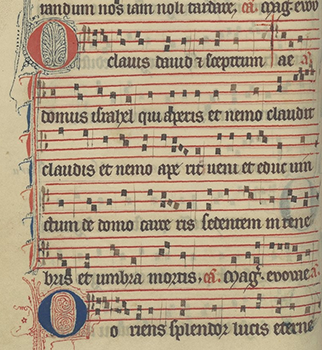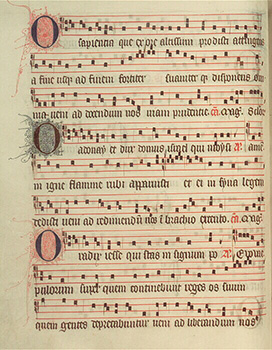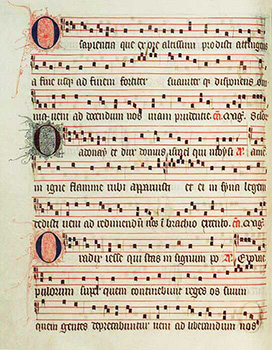For Sunday December 25, 2022
Lectionary Readings (Revised Common Lectionary, Year A)
Isaiah 52:7-10
Psalm 98
Hebrews 1:1-12
John 1:1-14
(NOTE: depending on your denominational tradition, the exact Scriptures for the December 25 lectionary might differ).
Last week I received two emails that eloquently express our Advent longings. From Michigan, a friend wrote how she had "so many people in my life right now who are hurting, suffering, questioning, disparaging, and on and on. Even those situations seem insignificant when compared with people in other countries experiencing unimaginable evil."
From Africa, a reader whose wife has a terminal illness agreed that "it's good news that God is with us, among us, working, and blessing," but he then asked, in all caps, "MY QUESTION THOUGH IS HOW, WHEN AND WHERE IS GOD BUSY DOING IT?" He reminded me of the psalmist, "How long, O Lord? Will you forget me forever? How long will you hide your face from me?" And Habakkuk, "How long, Lord, must I call for help, but you do not listen?" And of Jesus' cry of dereliction: "My God, why have you forsaken me?"
 |
|
O Key of David, c. 1300.
|
I don't have any easy answers to these hard questions. Nobody does. They have troubled thoughtful people (not just Christians) for millennia. But I take comfort that our Christian tradition encourages us to "live the questions" (Rilke) rather than to ignore them, or dismiss them as inappropriate, or to offer pious certitudes and glib cliches. The Jewish tradition from which we come is justly famous for badgering God, complaining, and arguing with him.
One Advent tradition that emerged to express our collective hopes for deliverance are the "Great Antiphons," sometimes called the "O Antiphons." We don't know the exact origins of them, but they were in liturgical use in Rome by the eighth century. In the west, the "standard" seven antiphons were sung or chanted in the Vesper services for the last seven days of Advent.
As we count down this last week before Christmas, I offer this thousand-year-old tradition of meditating on one Great Antiphon per day.
Each antiphon is a short paraphrase of Biblical passages. They begin with the particle "O," which is deliberately evocative and exclamatory. They then articulate one of the Messianic titles for Jesus from the Old Testament. They conclude with a repeated imperative for deliverance, "Come!" As one scholar put it, "They comfort, heighten, calm and focus, but they are also direct and demanding." They are unapologetically impatient. I like to think of the Great Antiphons as our "evocative imperative" — O God, do not delay, come and save us!
O Wisdom (Sapientia)
coming forth from the mouth of the Most High,
reaching from one end to the other,
mightily and sweetly ordering all things:
Come and teach us the way of prudence.O Lord (Adonai) and Ruler of the House of Israel,
who appeared to Moses in the fire of the burning bush,
and gave him the law on Sinai:
Come and redeem us with an outstretched arm.O Root of Jesse (Radix),
standing as a sign among the peoples;
before you kings will shut their mouths,
to you the nations will make their prayer:
Come and deliver us, and delay no longer.
O Key of David (Clavis) and sceptre of the House of Israel;
you open and no one can shut;
you shut and no one can open:
Come and lead the prisoners from the prison house,
those who dwell in darkness and the shadow of death.O Morning Star (Oriens),
splendor of light eternal and sun of righteousness:
Come and enlighten those who dwell in darkness and the shadow of death.O King of the nations (Rex Gentium), and their desire,
the cornerstone making both one:
Come and save the human race,
which you fashioned from clay.O Emmanuel (Emmanuel), our king and our lawgiver,
the hope of the nations and their Savior:
Come and save us, O Lord our God.
Finally, in a delightful piece of wordplay that is lost in the translation from Latin to English, the Great Antiphons contain a clever reverse acrostic. The first letters of the seven Messianic titles, proceeding from the last to the first, spell Ero cras (Emmanuel, Rex, Oriens, Clavis, Radix, Adonai, Sapientia) — literally, "I will be there tomorrow."And so our sevenfold plea to God—Come, contains in itself a response from God — I am coming. May it be so.
Merry Christmas from Journey with Jesus to our readers around the world!
Weekly Prayer
Aurelius Prudentius (348–413)
Of the Father’s love begotten, ere the worlds began to be,
He is Alpha and Omega, He the source, the ending He,
Of the things that are, that have been,
And that future years shall see, evermore and evermore!At His Word the worlds were framèd; He commanded; it was done:
Heaven and earth and depths of ocean in their threefold order one;
All that grows beneath the shining
Of the moon and burning sun, evermore and evermore!
He is found in human fashion, death and sorrow here to know,
That the race of Adam’s children doomed by law to endless woe,
May not henceforth die and perish
In the dreadful gulf below, evermore and evermore!O that birth forever blessèd, when the virgin, full of grace,
By the Holy Ghost conceiving, bare the Savior of our race;
And the Babe, the world’s Redeemer,
First revealed His sacred face, evermore and evermore!This is He Whom seers in old time chanted of with one accord;
Whom the voices of the prophets promised in their faithful word;
Now He shines, the long expected,
Let creation praise its Lord, evermore and evermore!O ye heights of heaven adore Him; angel hosts, His praises sing;
Powers, dominions, bow before Him, and extol our God and King!
Let no tongue on earth be silent,
Every voice in concert sing, evermore and evermore!Righteous judge of souls departed, righteous King of them that live,
On the Father’s throne exalted none in might with Thee may strive;
Who at last in vengeance coming
Sinners from Thy face shalt drive, evermore and evermore!Thee let old men, thee let young men, thee let boys in chorus sing;
Matrons, virgins, little maidens, with glad voices answering:
Let their guileless songs re-echo,
And the heart its music bring, evermore and evermore!Christ, to Thee with God the Father, and, O Holy Ghost, to Thee,
Hymn and chant with high thanksgiving, and unwearied praises be:
Honor, glory, and dominion,
And eternal victory, evermore and evermore!Aurelius Clemens Prudentius (c. 348-413) was a Roman Christian poet. He came from a distinguished Christian family, studied law, became an office-holder, was twice governor of a province, and then served in the court of the emperor Theodosius. Towards the end of his life Prudentius retired from public life to become an ascetic, fasting until evening and abstaining entirely from animal food. He devoted himself to writing hymns and poetry in the service of the Church.
Dan Clendenin:dan@journeywithjesus.net
Image credits: (1) Wikipedia.org; (2) Wikipedia.org; and (3) Google.com.







